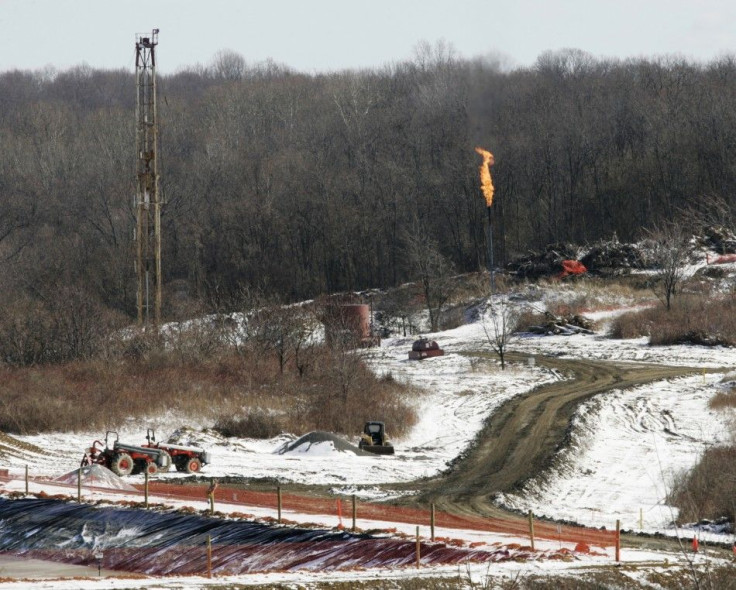State Fracking Laws Expand As Ohio Is Set To Approve Its Own Bill

Ohio could become Thursday the sixth U.S. state with laws regulating the controversial drilling practice known as fracking.
The state's House on Thursday is expected to vote on a bill that would bolster rules on hydraulic fracturing, and has already been approved by the Senate.
The bill, known as SB 315, touches on hydraulic fracturing chemical disclosures, at a time when many people across the country are leery of what natural gas companies pump into the ground to extract oil or natural gas.
Hydraulic fracturing is a drilling technique that requires the pumping of millions of gallons of water, sand and toxic chemicals into rock formations to fracture shale deposits and collect the natural gas and oil trapped within. The technique has been around for several decades, but residents in states including Wyoming and Pennsylvania are convinced the chemicals hurt the environment and water tables.
Thursday's vote would force drillers to disclose the chemicals used in the drilling and extraction -- unless they consider those chemicals a trade secret. Companies would also be required to disclose all information, as requested by state health professionals, on chemicals and their toxicity, when that information is useful for the treatment of a patient.
Oil and gas companies are surveying heavily in Ohio for prospective drilling. The state straddles both the Marcellus and the Utica shale formations, which have both prompted energy booms in Pennsylvania and parts of the Virginias.
The Utica shale formation underlies roughly one third of the state and could have between 2 and 8.2 billion barrels of oil equivalent (oil and natural gas liquids), according to conservative estimates from the state's Division of Geological Survey.
Oil is more profitable than natural gas; natural gas liquids, a combination of methane and other gas derivatives, is more expensive than dry natural gas, whose price has plummeted because of greatly increased production in the U.S..
So far, there are around 70 wells being drilled, and that number is expected to rise to more than 200 by the end of the year, said Heidi Hetzel-Evans, a spokeswoman for the Ohio Department of Natural Resources, who added Ohio is roughly four years behind Pennsylvania's energy boom.
Since 2008, roughly 28,500 drilling permits have been issued in neighboring Pennsylvania.
The House is expected to vote on the bill Thursday afternoon.
If passed, Ohio will join Texas, Wyoming, Arkansas, Colorado and Pennsylvania, which previously passed similar measures.
The bill is being criticized by the state's medical professionals, who say it prevents doctors from sharing with their patients how fracking chemicals could be hurting them, if the companies label them as trade secrets. The criticism mirrors what a Pennsylvania association of health care professionals said about that state's own fracking-disclosure law.
© Copyright IBTimes 2024. All rights reserved.











